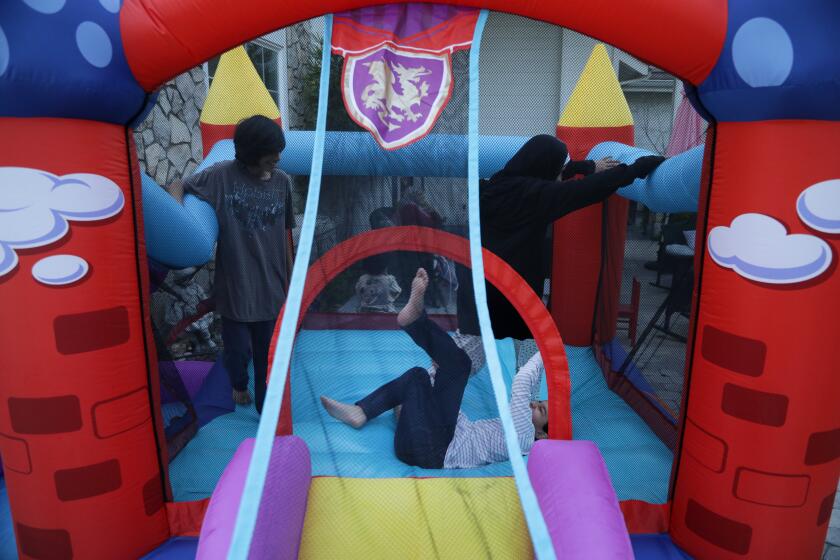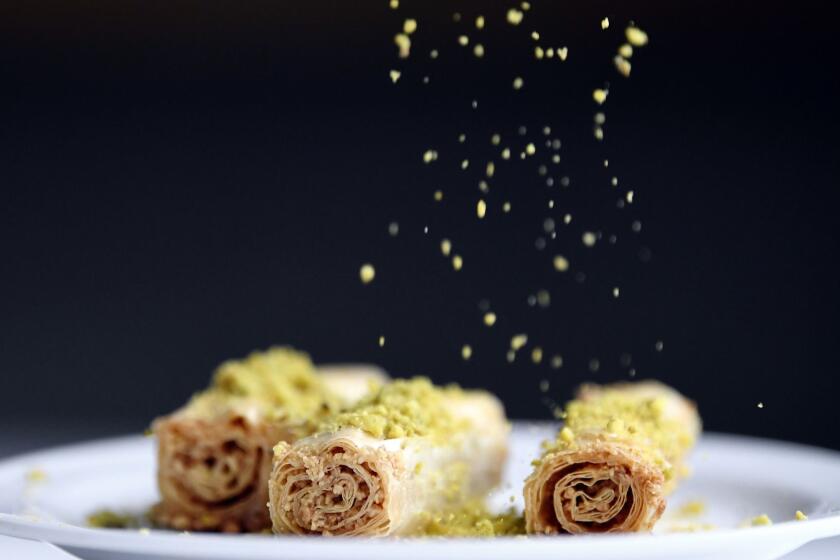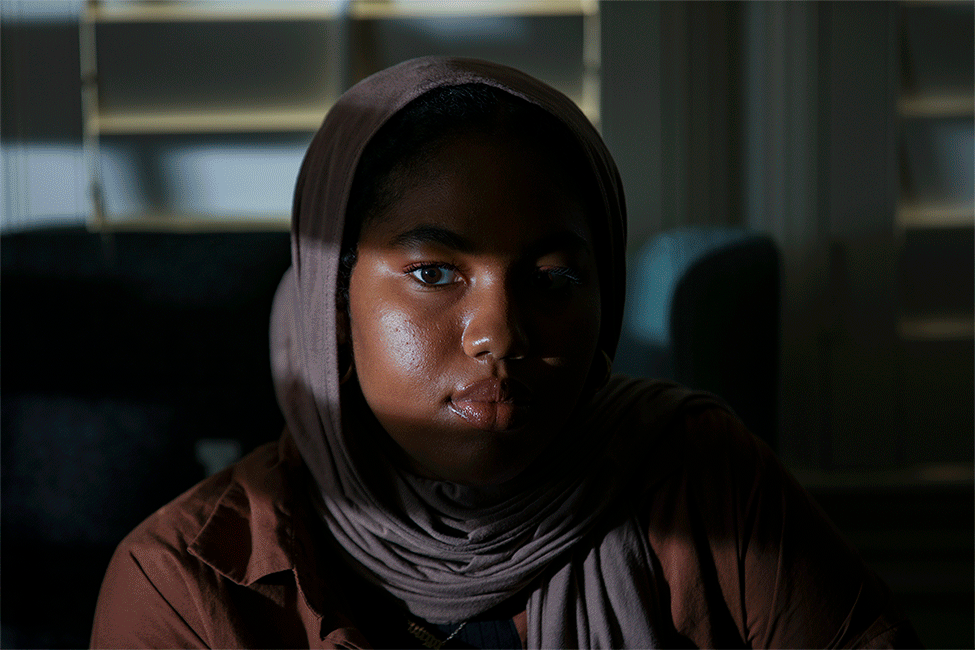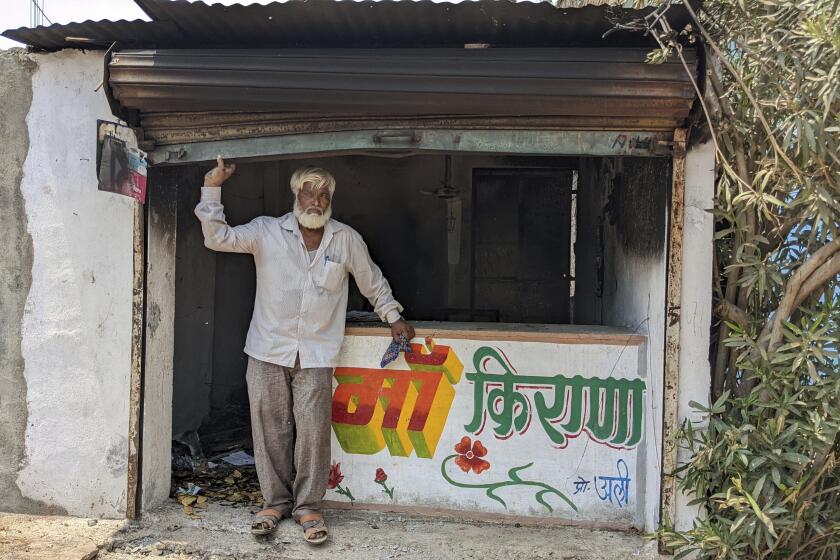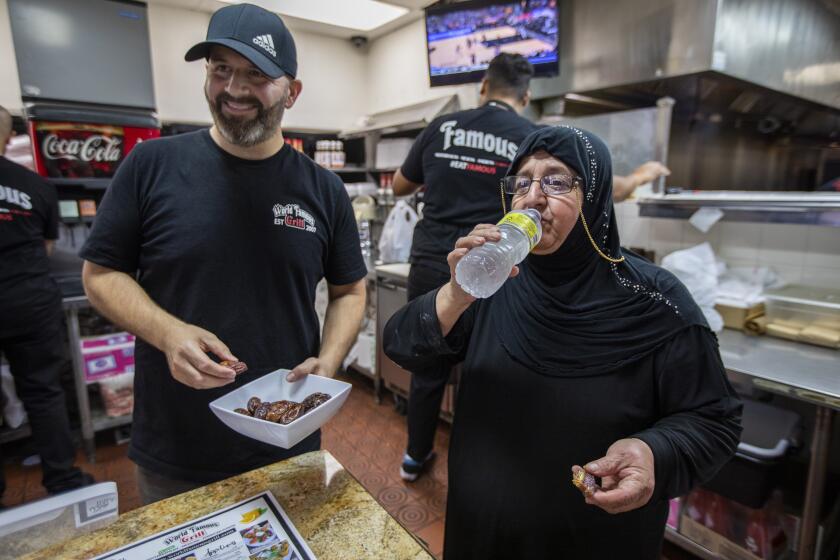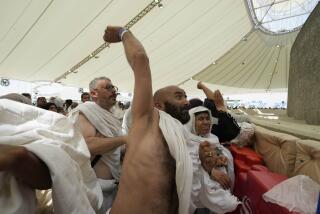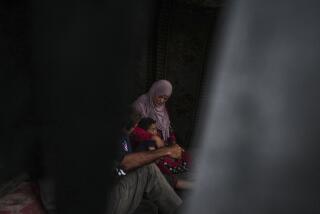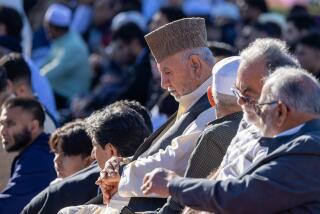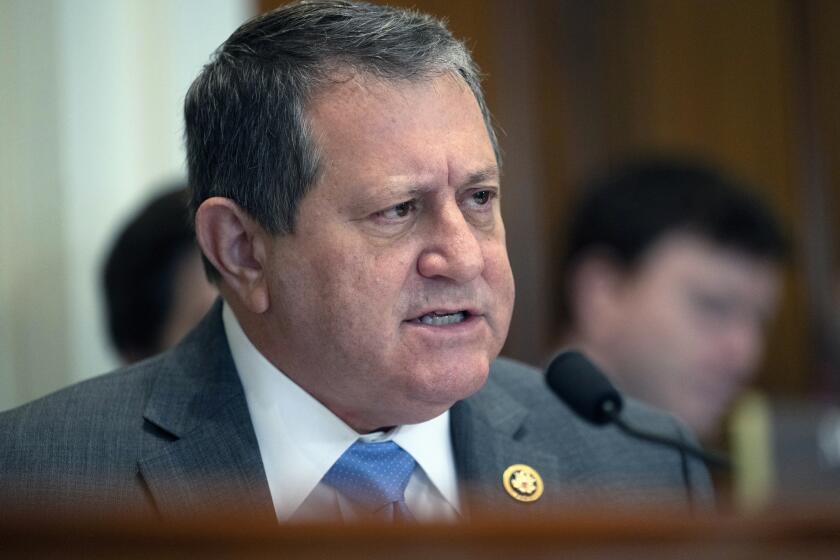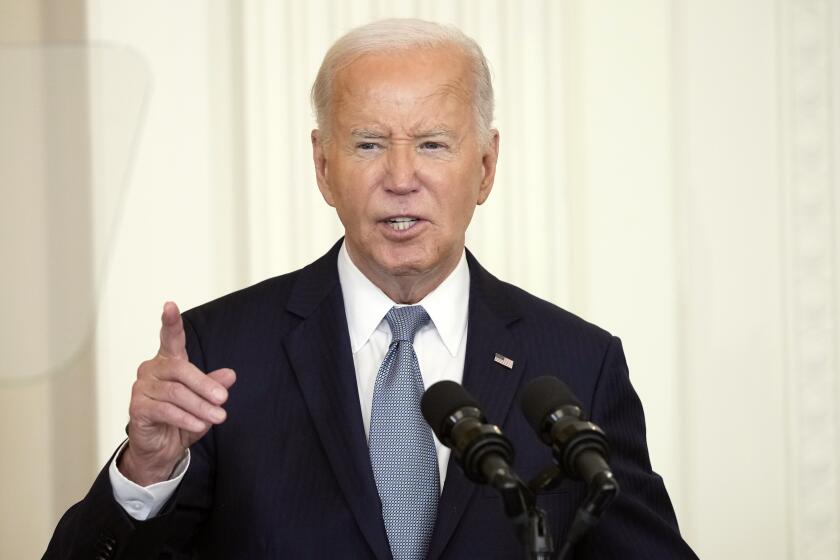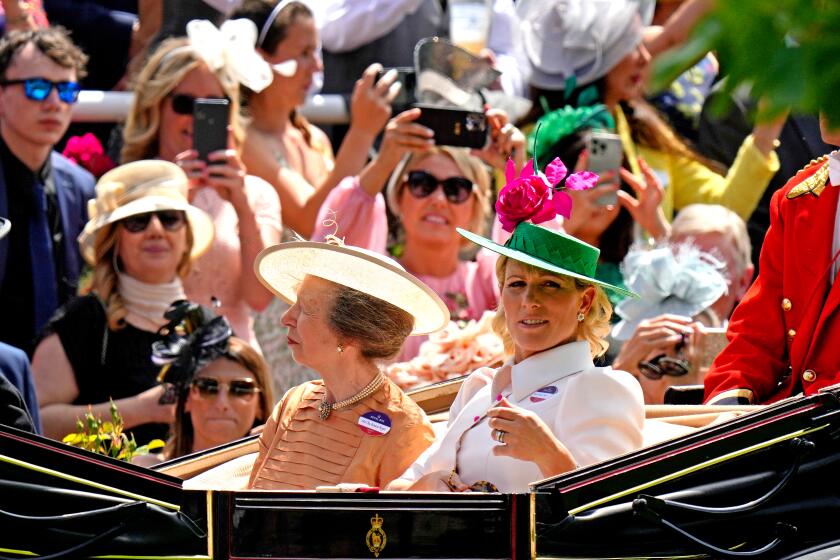Muslims mark Eid al-Fitr holiday with joy and concern around the world
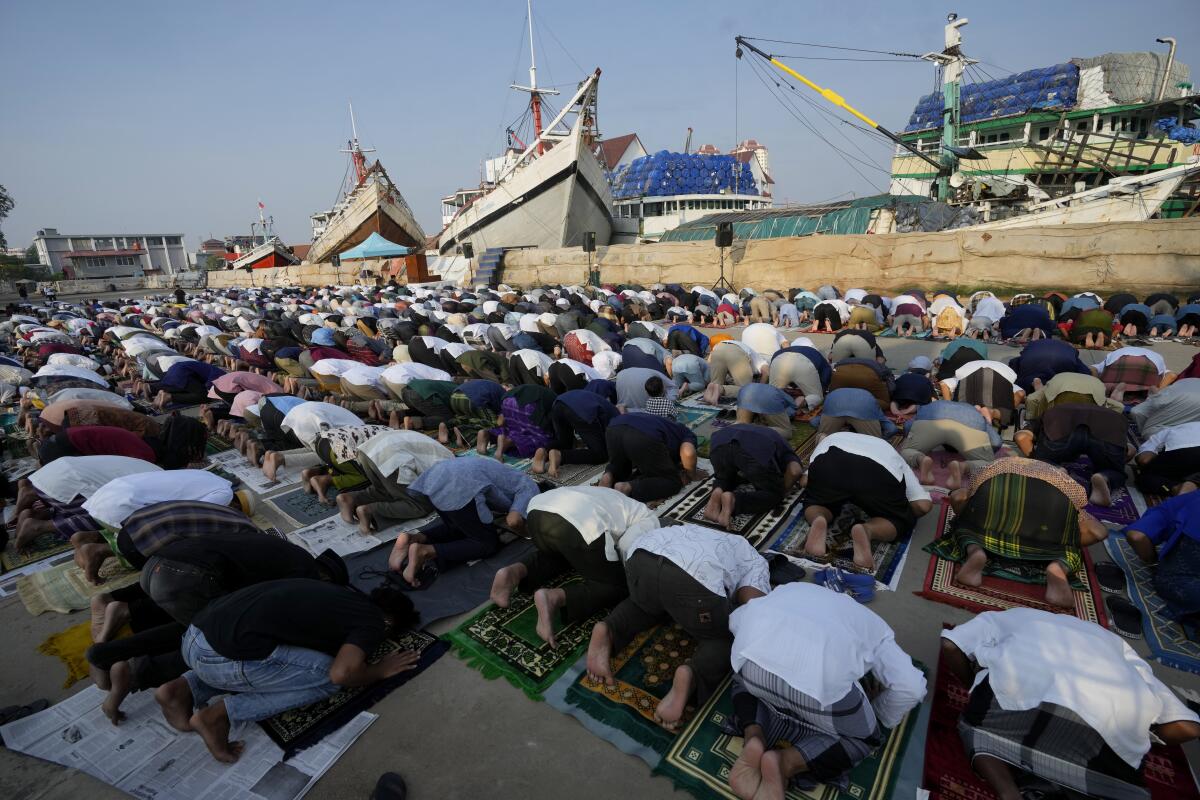
For the Islamic holiday of Eid al-Fitr, the smell of freshly baked orange biscuits and powdered sugar-dusted cookies typically fills the air in Mona Abubakr’s home. But owing to higher prices, the Egyptian housewife made smaller quantities of the sweet treats this year, some of which she gives as gifts to relatives and neighbors.
The mother of three has also tweaked another tradition this Eid, which began Monday in Egypt and many Muslim-majority countries and marks the end of the Islamic holy month of Ramadan. She bought fewer outfits for her sons to wear during the three-day feast.
“I told them we have to compromise on some things in order to be able to afford other things,” she said.
This year, Muslims around the world are observing Eid al-Fitr — typically marked with communal prayers, celebratory gatherings around festive meals and new clothes — in the shadow of a surge in global food prices exacerbated by the war in Ukraine. Against that backdrop, many are still determined to enjoy the Eid amid the easing of coronavirus restrictions in their countries. For others, the festivities are dampened by conflict and economic hardship.
At the largest mosque in Southeast Asia, tens of thousands of Muslims attended prayers Monday morning. The Istiqlal Grand Mosque in Indonesia’s capital, Jakarta, was shuttered when Islam’s holiest period coincided with the start of the COVID-19 pandemic in 2020 and was closed to communal prayers last year.
“Words can’t describe how happy I am today after two years we were separated by pandemic. Today we can do Eid prayer together again,” said Epi Tanjung after he and his wife worshiped at another Jakarta mosque. “Hopefully all of this will make us more faithful.”
Kids are often eager for their first Ramadan fasts. Here’s a collection of advice on how to help them at home and at school.
The war in Ukraine and sanctions on Russia have disrupted supplies of grain and fertilizer, driving up food prices at a time when inflation was already raging. A number of Muslim-majority countries are heavily reliant on Russian and Ukrainian wheat imports, for instance.
Even before the Russian invasion, an unexpectedly strong global recovery from the 2020 coronavirus recession had created supply-chain bottlenecks, causing shipping delays and pushing prices of food and other commodities higher.
In some countries, the fallout from the war in Ukraine is only adding to the woes of those already suffering from turmoil, displacement or poverty.
In Syria’s rebel-held northwestern province of Idlib, this year’s Ramadan was more difficult than Ramadans past. Abed Yassin said he, his wife and three children now receive half the amounts of products — including chickpeas, lentils, rice and cooking oil — which last year they used to get from an aid group.
In Anissa Helou’s beautiful story about fasting and feasting during Ramadan, she describes mouthwatering foods that would be delicious anytime.
In the Gaza Strip, though streets and markets are bustling, many say they cannot afford much.
“The situation is difficult,” said Um Musab, a mother of five, as she toured a traditional market in Gaza City. “Employees barely make a living, but the rest of the people are crushed.”
Mahmoud Madhoun, who bought some date paste, flour and oil to make Eid cookies, said financial conditions were going from bad to worse. “However, we are determined to rejoice,” he added.
The Palestinian enclave, which relies heavily on imports, was already vulnerable before the Ukraine war as it had been under a tight Israeli-Egyptian blockade meant to isolate Hamas, its militant rulers.
A generation of American Muslims has grown up in a world in which one terrible day changed their country. Visibility makes young women wearing hijabs especially vulnerable.
Afghans are celebrating their first Eid since the Taliban takeover amid grim security and economic conditions. Many were cautious but poured into Kabul’s largest mosques for prayers Sunday, when the holiday started there, amid tight security.
Frequent explosions marred the period leading up to Eid. These included fatal bombings, most claimed by the Islamic State affiliate known as ISIS-K, targeting ethnic Hazaras, who are mostly Shiites.
“We want to show our resistance, that they cannot push us away,” said community leader Bakr Saeed before Eid. “We will go forward.”
Since the Taliban takeover in August, Afghanistan’s economy has been in a free fall, with food prices and inflation soaring.
Breaking News
Get breaking news, investigations, analysis and more signature journalism from the Los Angeles Times in your inbox.
You may occasionally receive promotional content from the Los Angeles Times.
Muslims follow a lunar calendar, and methodologies, including moon sighting, can lead to different countries and Muslim communities declaring the start of Eid on different days.
In Iraq, fewer shoppers than usual appeared to have visited the capital’s clothing markets this year. Security issues also plague celebrations, with security forces going on high alert from Sunday to Thursday to avert possible attacks after a suicide bombing in Baghdad last year ahead of another major Islamic holiday killed dozens.
In India, the country’s Muslim minority is reeling from vilification by hard-line Hindu nationalists who have long espoused anti-Muslim stances, with some inciting violence against Muslims. Muslim preachers cautioned the faithful to remain vigilant during Eid.
Indian Muslims “are proactively preparing themselves to deal with the worst,” said Ovais Sultan Khan, a rights activist. “Nothing is as it used to be for Muslims in India, including the Eid.”
India’s hard-line Hindu nationalists have long espoused an anti-Muslim stance, but attacks against the minority community have been more frequent.
Still, many Muslims elsewhere rejoiced in reviving rituals disrupted by pandemic restrictions.
Millions of Indonesians have crammed into trains, ferries and buses ahead of Eid as they poured out of major cities to celebrate with their families in villages in the world’s most populous Muslim-majority country. The return of the tradition of homecoming caused great excitement after two years of subdued festivities because of pandemic restrictions.
Muslims in Malaysia were also in a celebratory mood after their country’s borders fully reopened and COVID-19 measures were further loosened. Ramadan bazaars and shopping malls have been filled with shoppers ahead of Eid, and many traveled to their hometowns.
“It’s a blessing that we can now go back to celebrate,” said sales manager Fairuz Mohamad Talib, who works in Kuala Lumpur. His family will celebrate at his wife’s village after two years of being apart.
For non-Muslims, the idea of a fasting for a month while working around food might seem torturous. At this Bell restaurant, the workers are unfazed.
There, he said, they will visit neighbors after the Eid prayers, chanting praises of the prophet Muhammad, and sharing food at each stop.
“It’s not about feasting but about getting together,” he said ahead of the holiday. With COVID-19 still on his mind, the family will take precautions such as wearing masks during visits. “There will be no handshakes, just fist bumps.”
More to Read
Start your day right
Sign up for Essential California for news, features and recommendations from the L.A. Times and beyond in your inbox six days a week.
You may occasionally receive promotional content from the Los Angeles Times.
